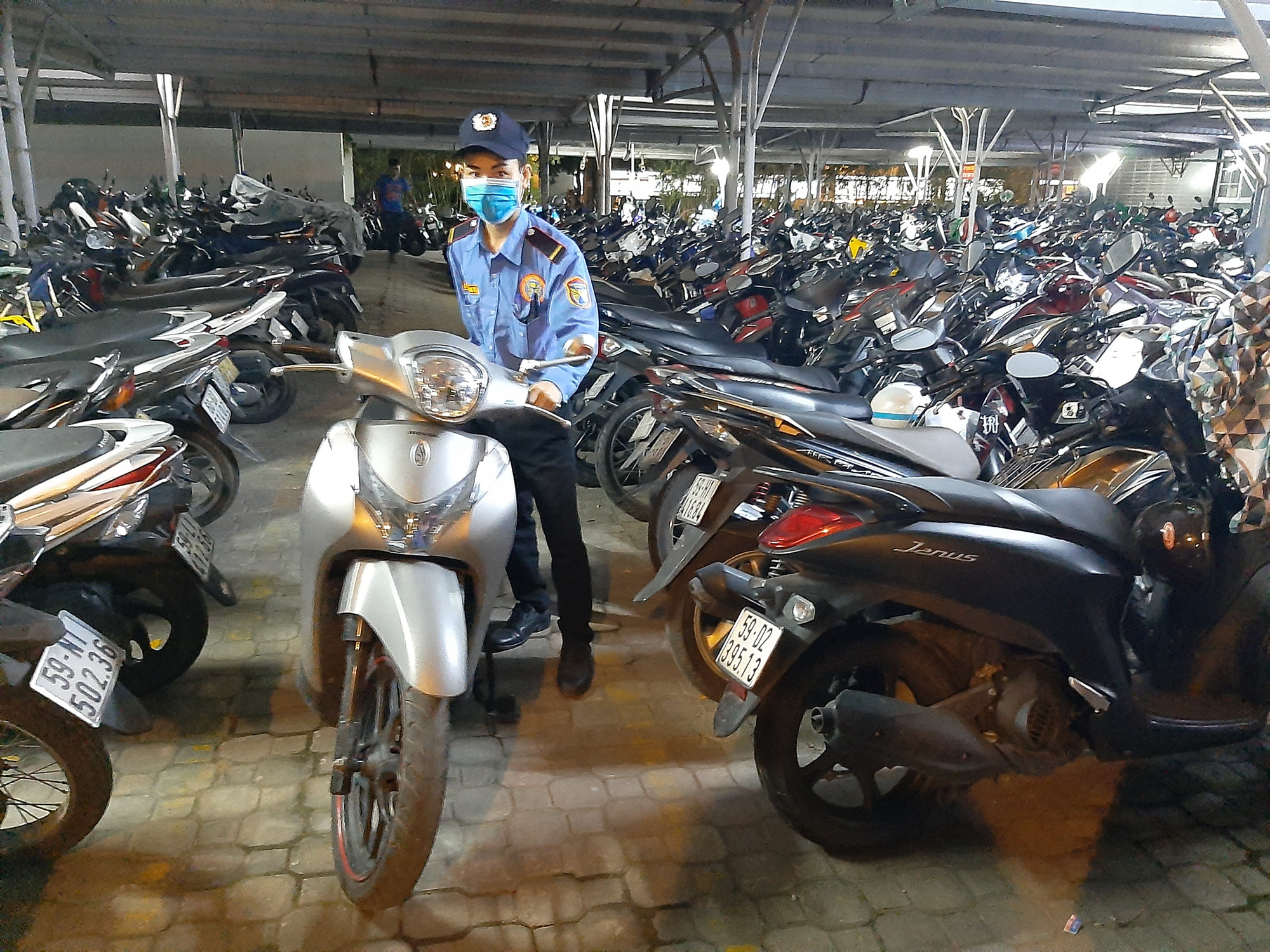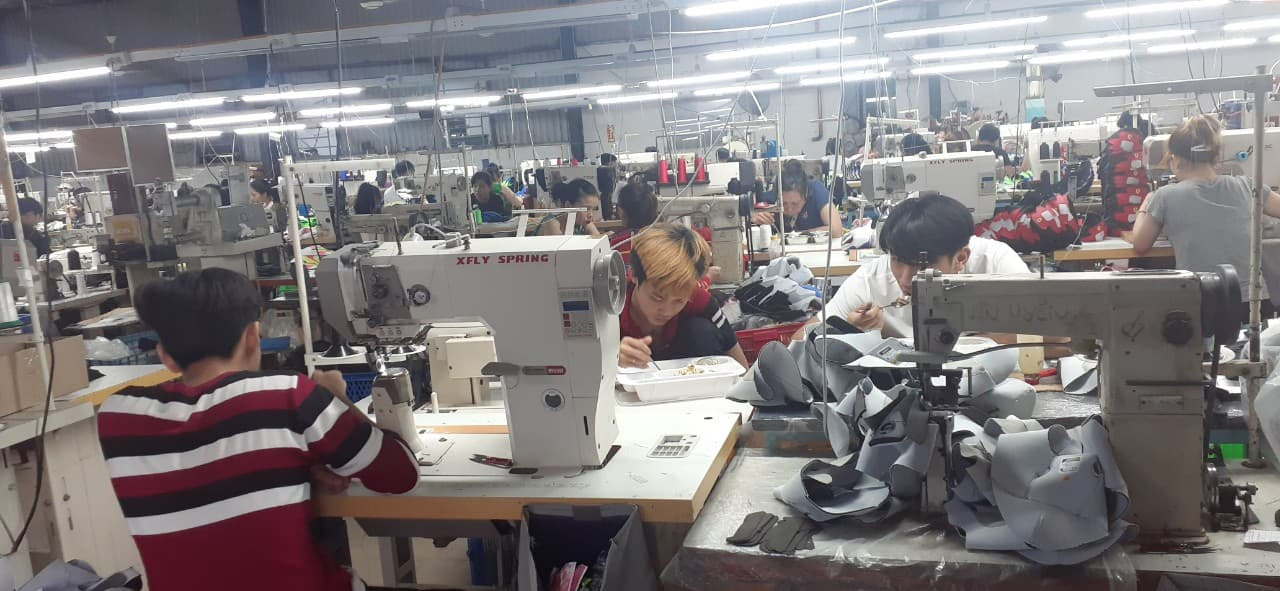As the deadly COVID-19 pandemic and the devastating impact it wielded on the global economy are here to linger, blue-collar workers in Ho Chi Minh City are prepared to take on any kind of jobs available to make ends meet.
More than 20 million people have been infected with the coronavirus globally, with around 734,000 virus-related deaths.
In Vietnam, where there are 841 COVID-19 cases against a population of over 96 million, the pandemic’s economic impacts are already strongly felt — the urban unemployment rate in the second quarter was at a ten-year high of 4.46 percent, according to the General Statistics Office.
Another 60,000-70,000 people in the Southeast Asian country will lose their jobs each month until the end of the year, mostly in tourism, services, construction, transport and manufacturing, in the worst-case scenario, Deputy Minister of Labor, War Invalids, and Social Affairs Le Van Thanh told VnExpress.
Job-hopping to survive
“Is your place hiring? Hook me up, I’m unemployed now,” Thanh Tuan, a 28-year-old hailing from the central province of Quang Ngai, said to his friend on the phone as he packed his stuff, preparing to return his rental room before hitting the road to pursue a new job.
He used to work at a frozen food factory in the Tan Tao Industrial Zone of Ho Chi Minh City, but was recently laid off as the business struggled to find new orders after the COVID-19 upheaval.
“I just called my friend who is working in an advertising sign firm. He cast doubt whether I can do the job. I totally can. [I am a] jack of all trades, no trade is impossible for me,” Tuan affirmed.
Due to the pandemic, returning to his hometown is not an option for Tuan at the moment.
“After leaving my hometown for work, I can’t just return with empty hands, so I must try to make money and survive in this city,” he elaborated.
In regard to the new job, he expects to earn VND6 million (US$258) per month installing LED lights and embossed lettering on shop signs.
Tuan is by no means an isolated case. There are many odd-jobbers struggling to find a stable job, who have no choice but to jump intermittently between vacancies.
Take Tan Luc, a 24-year-old from the Mekong Delta’s Ben Tre Province, as an example: after spending two years working in a shoemaking factory, he entered a phase where he could not find stable work, putting labor in at various jobs from porting cargo to driving trucks before coming to work for a beverage bottling facility.
“During the pandemic, all companies are more or less exasperated. Places that I used to work for have all been closed now, so we have to devise ways to get a new job,” Luc said.
“Luckily enough, I can do every kind of job. Were there to be something I don’t know, I would ask the boss. I hope that the current job can be stable so I don’t have to find another one,” he added.
|
|
| Thanh Tuan works on a shop sign at an advertising workshop after being laid off from his previous full-time job. Photo: M.L. / Tuoi Tre |
Dinh An, a 32-year-old from north-central Thanh Hoa Province, was cruising the streets of Ho Chi Minh City on his motorbike after being made redundant at an incense stick manufacturing workshop in Binh Tan District.
The lay-off was attributable to the slump in business orders that the workshop was facing in the pandemic, which in turn pushed An to the streets looking for each and every recruitment notice.
“I dropped my résumé everywhere, yet some pay too low while others are not recruiting at this time, so I decided to do manual labor,” An said.
“I have dabbled for two months so far, experiencing a total of six jobs. I first became an Internet café attendant, then a parking lot guard for a coffee shop. Both had to cut down on personnel due to the lack of patrons,” he said.
“I got in to work for a cold cut manufacturing facility but had to quit as well. Then came the construction worker gig, which paid by daily roll. Once the project was completed, I had to quit. I turned to doing car washes for a few days, but that did not work out as well. Now I am looking for places that are hiring so I can apply,” An explained.
Hard work pays off
Minh Quang, aged 28, is a native of the Central Highlands’ Dak Lak Province. He used to work for a shoe factory in the southern industrial hub Binh Duong Province before facing a lay-off.
He has since had to get by in Ho Chi Minh City through an array of blue-collar jobs, from assisting a crab wholesale spot on Phan Anh Street, cultivating ornamental trees for a shop in Go Vap District to barbering for a shop on Thanh Thai Street in District 10 and now being a guard for an apartment building.
“COVID-19 has upended the livelihood of many people, and us blue-collar workers are the ones who suffered the most. I've fared a little better than others since I can take on all kinds of jobs, whereas some of my friends are out of work, staying at home with nothing better to do,” Quang said.
|
|
| Workers are seen assembling clothes at a garment factory in Thu Duc District, Ho Chi Minh City. Photo: M.L. / Tuoi Tre |
Hoang Quy, aged 34, was working for a welding workshop in Binh Thanh District, Ho Chi Minh City before it went out of business. Quy is now a barber working for a shop in the city’s Binh Tan District.
“Blue-collar workers like me are not educated enough to do jobs that require calculation and abstract thinking. Yet I can definitely do it as long as it’s manual labor, no matter how hard and arduous it is,” Quy acknowledged.
This pandemic would put a burden on everyone, yet people who are hardworking will eventually make it through, he added.
“People with more skills in hand, who have endurance and are not afraid to get their hands dirty would have way more job prospects. Jacks of all trades will not stay unemployed for long,” Quy opined.
Joking around with his words, he continued to show his optimistic vision: “As the pandemic is still raging unpredictably, people are losing jobs every day, odd-jobbers like us might be the ones with the best careers at the moment.”
Like us on Facebook or follow us on Twitter to get the latest news about Vietnam!




















































